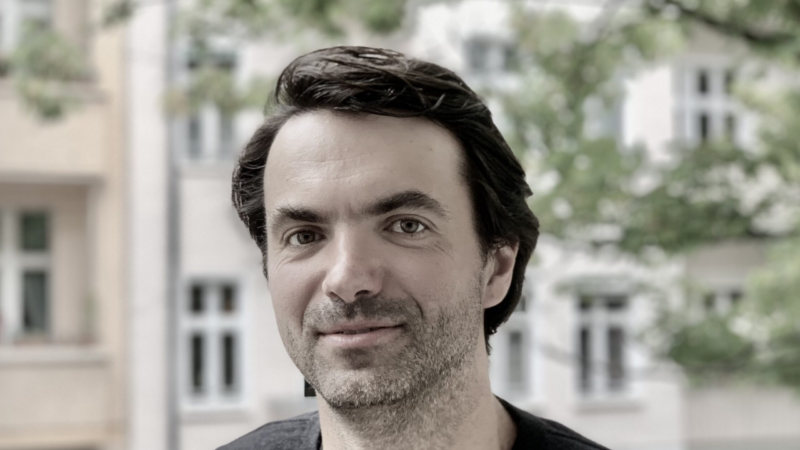
Task Force: European Platform Economy
The “Task Force European Platform Economy” is a group of HIIG researchers who study the implications of global platformisation for European actors and institutions. The Task Force works in an explorative and flexible manner across several projects and disciplines, and collaborates with external researchers, policymakers and business experts. The group’s aim is to conduct and foster research on digital platforms, establish a network of platform experts and promote knowledge transfer and exchange. To facilitate regular dialogue across stakeholder groups and geographies, the Task Force organises roundtables, talks and workshops in Berlin and across Europe.
More about our research agenda
The rise of the global platform economy
Today’s digital economy runs on platforms. With digitisation now at planetary scale, enormous amounts of data are available and billions of devices have been interconnected. Platform businesses have become the key aggregators, processors and gatekeepers of vast and complex digital connectivity. As such, they are essential digital infrastructures and determinants of economic growth and power.
Platform businesses especially from the US and China have capitalised most on the rise of the platform economy. The risks of dominance by a few transnational companies for Europe’s digital economy have recently become apparent. First, hard-fought European values and institutions, such as co-determination, worker protections and privacy, have sometimes been circumvented and undermined by rapidly expanding platforms like Uber, Facebook and Amazon. Second, innovation platforms like Google, Apple and Microsoft have become enablers but also standard setters and insurmountable competition for European platform upstarts.
Platformisation as structural shift in the digital economy
We understand platformisation as a fundamental structural shift in how value is created and captured by distributed economic actors. Value creation is no longer internalised within the boundaries of firms that exchange along linear value chains. Instead, platform business models dictate that users are value co-producers while platform providers capture value as orchestrator firms. Meanwhile, most digital platforms remain “asset-light”: they do not establish significant physical operations (like roads, buildings, physical infrastructure) themselves. At the same time, platforms unilaterally determine institutions (values, norms and rules) that govern users’ activity.
The platform economy thus poses new challenges for traditional legal and normative frameworks (e.g., competition law) and collectives (e.g., unions).
Research Topics
HIIG researchers are exploring a set of interconnected questions to understand the key structural changes (opportunities and challenges) brought about by platformisation and platform business models. We approach the platform economy from different disciplinary angles, building on from prior work within HIIG research programmes, groups and projects. Currently, three research projects fall under the domain and focus of the Task Force: Platform Alternatives, DaPla and Platform Governance.
- What are the effects of platformisation on different segments of the digital economy? Where is platformisation more or less pronounced, and why?
- How and by whom is value created and captured in the global platform economy? Which data governance and ownership approaches exist?
- How are digital platforms creating infrastructures for the dissemination of information and for the production of knowledge? What are the enabling and constraining roles of standards and rules embedded in those infrastructures?
- How is the market power of a few digital players affecting opportunities for European platform startups in different product categories? What are viable strategies for upstart European platform providers to offer alternatives and innovations?
- How can stakeholders in Europe work together more effectively to achieve a platform economy that is more sustainable and equitable?
- What roles do alternative modes of platform organisation and legal forms, such as platform cooperatives or platform foundations, play in the platform economy and what is their potential?
- How can and should platforms be regulated, given that they are private enterprises that set supranational infrastructures and institutions for the digital economy? What can and should be regulated at national vs. at EU level?
European Platform Economy Network and Knowledge Transfer
HIIG intends to build a European network of experts and stakeholders from different sectors (esp. academia, policymakers and entrepreneurs) to exchange views on and develop solutions for the future of the European and global platform economy. To this end, the Task Force will convene stakeholders in the context of various new and established HIIG knowledge transfer formats. The network will build on HIIG’s foundational role in the European Hub for Internet and Society Research.
| Start | 01.02.2019 |
 Christian Katzenbach, Prof. Dr.Associated researcher: The evolving digital society
Christian Katzenbach, Prof. Dr.Associated researcher: The evolving digital society Frédéric DuboisManaging Editor: Internet Policy Review, Prject lead: ELADOAH
Frédéric DuboisManaging Editor: Internet Policy Review, Prject lead: ELADOAH Jeanette Hofmann, Prof. Dr.Research Director
Jeanette Hofmann, Prof. Dr.Research Director Philip MeierAssociated Researcher: Innovation, Entrepreneurship & Society
Philip MeierAssociated Researcher: Innovation, Entrepreneurship & Society Thomas Schildhauer, Prof. Dr. Dr.Research Director
Thomas Schildhauer, Prof. Dr. Dr.Research Director
-
 Asal DardanFormer Knowledge Transfer Coordinator: Innovation, Entrepreneurship & Society
Asal DardanFormer Knowledge Transfer Coordinator: Innovation, Entrepreneurship & Society -
 Christopher OlkStudent Assistant: Innovation & Entrepreneurship
Christopher OlkStudent Assistant: Innovation & Entrepreneurship -
 Kirsten GollatzFormer Associate Researcher: The evolving digital society
Kirsten GollatzFormer Associate Researcher: The evolving digital society -
 Nicolas Friederici, Dr.Former Associated Researcher: Innovation, Entrepreneurship & Society
Nicolas Friederici, Dr.Former Associated Researcher: Innovation, Entrepreneurship & Society -
 Sina BecksteinFormer Associated researcher: Innovation & Entrepreneurship
Sina BecksteinFormer Associated researcher: Innovation & Entrepreneurship -
 Tina KrellFormer Associated Researcher: Innovation, Entrepreneurship & Society
Tina KrellFormer Associated Researcher: Innovation, Entrepreneurship & Society
Book contributions and chapters
Meier, P. (2018). Digitale Plattformen als Innovationstreiber. In P. Plugmann (Ed.), Innovationsumgebungen gestalten. Impulse für Start-ups und etablierte Unternehmen im globalen Wettbewerb (pp. 207-217). Wiesbaden: Springer Gabler. Publication details
Dogruel, L. & Katzenbach, C. (2018). Internet-Ökonomie – Grundlagen, Strategien, Plattformen. In Schweiger, W. & Beck, K. (Eds.), Handbuch Online-Kommunikation. Wiesbaden: Springer VS. Publication details
Other publications
Friederici, N. (2020). Can European platform capitalism be sustainable? Digital Society Blog. Publication details
Gollatz, K. (2016). The Power of Platforms. Digital Society Blog. Publication details
Lectures and presentations
An exploration for value capture mechanisms in platform-orchestrated networksInternational Conference on Design and Technology. Technion, Haifa, Israel: 18.06.2019 Further information
Philip Meier
The Platformization of EverythingPresentation. Garwood Center for Corporate Innovation, Haas Business School, University of California, Berkeley, USA: 22.04.2019 Further information
Philip Meier
Die Öffentlichkeit der Plattformen: Wechselseitige (Neu-)Institutionalisierung von Öffentlichkeiten und PlattformenMediensymposium Luzern 2018 „Digitaler Strukturwandel der Öffentlichkeit“. Art Deco Hotel Montana, Luzern, Switzerland: 29.11.2018
Christian Katzenbach
Panels
Kampf der Plattform-Giganten – wie sieht der deutsch-europäische Weg aus?11. Internet Governance Forum Deutschland. Bundesministerium für Wirtschaft & Energie, Berlin, Germany: 11.09.2019 Further information
Nicolas Friederici


